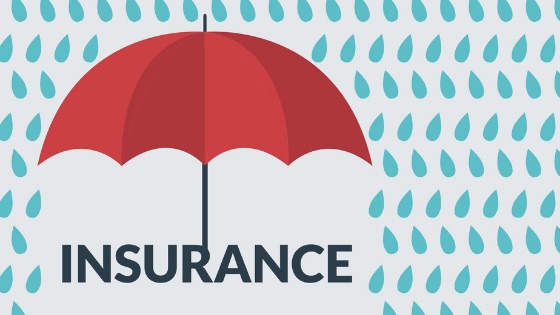Umbrella Insurance Policy 2024 Liability insurance provides financial protection to you and your family in case of property damage or injuries caused by you, such as lawsuits resulting from a significant car accident. However, what happens if the expenses incurred exceed the liability coverage provided by your auto or homeowners insurance policy? This is where umbrella insurance comes into play. Umbrella insurance augments your existing coverage and provides an additional layer of protection against unexpected costs that go beyond your liability limits. It can safeguard your assets and protect you against future financial difficulties arising from unforeseen events. It is important to note that umbrella insurance is not mandatory but is highly recommended for those seeking extra peace of mind and security.
Outlines Of Guide
ToggleWhat Is Umbrella Insurance?
Umbrella insurance offers additional coverage beyond the liability insurance included in your auto, homeowners, and/or watercraft insurance policies, providing protection in costly situations where medical expenses and repairs surpass the coverage limits of your base policies. Essentially, it serves as asset protection, safeguarding your assets from being used to settle a lawsuit judgment.
In order to purchase umbrella insurance, it is usually required to have a baseline of home and auto liability insurance. This may include a minimum of $300,000 in homeowners insurance and $250,000 for injuries, as well as $100,000 for property damage in your auto insurance policy.
Umbrella Insurance Policy
An umbrella insurance policy is an additional layer of liability coverage that goes above and beyond the limits of your existing insurance policies. It provides extra protection in case you are held liable for damages or injuries that exceed the limits of your primary insurance policies, such as your auto or homeowners insurance.
Here’s how it works: let’s say you are involved in a car accident and the other party sues you for damages that exceed the limits of your auto insurance policy. If you have an umbrella policy, it would kick in to cover the remaining costs up to the limit of the umbrella policy.
Umbrella insurance can provide peace of mind and protect your assets in case of a major lawsuit. It is especially important if you have significant assets or if you engage in activities that may pose a higher risk of liability, such as owning rental properties or having a swimming pool. It’s always a good idea to speak with an insurance professional who can assess your specific needs and help determine if an umbrella policy is right for you.
How Does Umbrella Insurance Work?
Umbrella insurance is a type of insurance coverage that comes into play when an individual has exhausted their “base” liability limits on other policies, such as home or car insurance. This additional coverage can provide an added layer of protection for individuals who may face significant financial damages in the event of a lawsuit or accident. It is important to consider purchasing umbrella insurance to ensure that you are fully protected in case of unforeseen events beyond your control.
Incidents Where Umbrella Insurance Could Cover You
You cause a serious auto or boating accident
Bills from auto or boating accidents can accumulate rapidly, particularly if you are responsible for the medical expenses of multiple individuals. Your auto or boat insurance coverage will be the primary payer, up to its limit, and then your umbrella insurance would come into play.
Your dog bites someone
Homeowners insurance usually includes personal liability coverage for dog bites. However, if you are sued for an amount exceeding your home insurance liability limit, your umbrella policy will provide coverage for expenses like medical bills and pain and suffering.
You drive your car into a building
Sometimes, a person may accidentally drive their car into a convenience store, causing significant damage to the building. In such a case, your car insurance would cover the costs initially, with an umbrella policy coming into play if your car insurance limit is insufficient.
You accidentally injure someone
In the event of accidental injury caused by you or a family member, umbrella insurance will provide coverage after the limits of auto or home insurance have been reached. For instance, if your son unintentionally injures someone by throwing a baseball and your homeowners liability insurance is exhausted, the umbrella insurance will then come into effect.
You’re on a board of directors of a charity and are sued for a board-related issue
Consider consulting your insurance agent to determine if your work on a board of directors, whether paid or for a non-profit, is covered by an umbrella policy for potential lawsuits.
Your teen is sued
Having umbrella insurance can be beneficial in situations where you or your family members may be held liable for damages or legal costs. For example, if your teen posts a defamatory comment online and you are sued, your umbrella insurance policy can help cover the costs associated with legal fees and judgments. This type of insurance provides an extra layer of protection beyond what is covered by your regular home or auto insurance policies. It is essential to review your coverage limits and ensure that they are sufficient to meet your needs in case of an unforeseen event.
Your child accidentally causes damage to someone else’s property
In the unfortunate event that your child accidentally damages someone else’s property, it is important to have insurance coverage in place to cover the costs. Your home insurance policy can be the first line of defense and pay out for damages up to a certain limit. However, if the damage exceeds your home insurance liability limits, then umbrella insurance can provide additional coverage. Umbrella insurance is designed to provide extra liability protection beyond what your standard home or auto insurance policy covers. It can be a smart investment for families with children who may be more prone to accidents that could result in property damage.
What Does Umbrella Insurance Cover?
Umbrella insurance offers extensive coverage for various issues and supplies additional funds beyond the coverage limits of other policies like auto or home insurance. Typically, your umbrella insurance policy also extends coverage to household members such as your spouse and children. It provides liability coverage for issues such as:
- Bodily injury to others
- Property damage to others
- The legal costs to defend you in lawsuits related to these problems
- Lawsuits such as defamation, libel, slander and invasion of privacy
- Incidents that happen outside the U.S.
Umbrella Coverage Beyond the Base Insurance Policy
Another advantage of umbrella insurance is that it usually provides coverage that’s not found in a base auto or homeowners policy at all. For example:
- False arrest, imprisonment or detention
- Malicious prosecution
- Wrongful eviction or entry
- Invasion of privacy
What Umbrella Insurance Won’t Cover
Umbrella insurance doesn’t cover your own injuries or damage to your own property. Here are other problems typically not covered by umbrella insurance:
- Business losses
- Criminal acts by you
- Written or oral contracts
- Intentional acts or injury by you
- Damage due to nuclear radiation, war or terrorism
- Communicable disease, such as a lawsuit against you for giving someone herpes
Do You Need Umbrella Insurance?
Personal umbrella insurance is essential for affluent households to safeguard their assets from significant lawsuits. Affluent individuals and families are often targeted for lawsuits, but engaging in certain activities, like owning dogs or a swimming pool, can also increase the risk of facing legal action, regardless of wealth. People with significant assets can benefit from an umbrella policy. There are other instances when umbrella coverage is a wise purchase, such as if you own a swimming pool.
USAA Car Insurance Review For 2024
The General Car Insurance Review
Extra Coverage to Protect Your Assets
Umbrella insurance provides additional coverage to safeguard your assets. In the event of a costly car accident that results in injuries to others, assets like your bank account, real estate, vehicles, and other valuables could be at risk of seizure if you lose a lawsuit. Additionally, if your assets are insufficient to cover a judgment, you may be required to allocate a portion of your wages. When faced with a lawsuit stemming from an accident, your umbrella insurance becomes effective once your car insurance liability limits are reached, and it will continue to provide coverage up to the limit of your umbrella policy. It is advisable to obtain adequate umbrella insurance to ensure that your total liability insurance covers your net worth.
Who Has High Risk Potential for Lawsuits?
Your lifestyle or activities may put you at a higher risk of facing a lawsuit. Examples of circumstances that could increase your chances of being sued include:
- You serve on a charitable board.
- You have kids living at home.
- You have a swimming pool, pond or trampoline.
- You have dogs, horses or other large animals.
- You manage a family trust.
- You host large parties in your home.
- You employ household staff.
- You own rental properties.
- You have a high public profile.
How Much Umbrella Insurance Do I Need?
Choosing the right amount of coverage requires careful consideration of several factors. These include your budget, your level of risk tolerance, and the potential financial impact of an unforeseen event. It is important to strike a balance between adequate coverage and affordability, without leaving yourself too exposed to potential risks. Additionally, it may be helpful to consult with an insurance professional who can guide you through the selection process and provide personalized recommendations based on your unique needs and circumstances.
Value of your assets: It is advisable for an umbrella policy to encompass at least your net worth, which typically represents the potential loss in a legal case.
Potential future income loss:You might also face the risk of losing your future earnings in a major lawsuit. Even if your current income is limited, it’s important to think about your potential future earnings. For example, as a medical student, you should take into account your future income potential.
Going through a lengthy legal process can be very stressful and has the potential to damage one’s reputation, regardless of the validity of the lawsuit. While buying an umbrella policy may not reduce the stress, it can protect all the hard work you have put into building your assets.
How Much Does Umbrella Insurance Cost?
Umbrella insurance typically runs about $383 annually for $1 million in coverage, as reported by ACE Private Risk Services, a subsidiary of Chubb specializing in high net-worth personal insurance. When obtaining a quote for umbrella insurance, the premium will be determined by factors like:
- Where you live
- Your credit history
- Your driving record
- Your risk of filing an umbrella insurance claim
Average Umbrella Insurance Cost for a Person With One Home, Two Cars and Two Drivers
| Umbrella insurance limit | Annual cost of umbrella insurance |
|---|---|
| $1 million | $383 |
| $2 million | $474 |
| $5 million | $608 |
| $10 million | $999 |
Average Umbrella Insurance Cost for a Person With Three Homes, Four Cars, One Boat and Three Drivers, Including One Driver Under Age 25
| Umbrella insurance limit | Annual cost of umbrella insurance |
|---|---|
| $1 million | $563 |
| $2 million | $713 |
| $5 million | $933 |
| $10 million | $1,578 |
Purchasing Umbrella Insurance
Umbrella insurance is often offered by insurers who also sell auto, home, and boat insurance. Typically, you will need to purchase umbrella insurance from the same company that provides your auto and/or homeowners insurance. It is also an option for individuals who purchase renters insurance. Companies offering umbrella insurance include:
- Allstate
- American Family
- Auto-Owners
- Chubb
- Country Financial
- Erie Insurance
- Farmers
- Nationwide
- Progressive
- Shelter
- State Farm
- Travelers
- USAA (available only to military members, veterans and their families)
- Westfield
What Should I Consider When Choosing a Personal Umbrella Policy?
When shopping for a personal umbrella insurance policy, it is crucial to purchase adequate coverage. Here are some tips to keep in mind: 1. Consider your assets and liabilities: Determine the value of your assets and potential liabilities to get an idea of how much coverage you need. 2. Look at your existing policies: Check your existing insurance policies (such as home and auto) to see if they have any limits on liability coverage. Your umbrella policy should provide coverage beyond these limits. 3. Assess your level of risk: Think about the activities you engage in regularly and the potential risks associated with them. For example, if you own a swimming pool or have a dog, you may be at a higher risk for liability claims. 4. Compare quotes from multiple insurers: Shop around for quotes from different insurance companies to find the best coverage at an affordable price. 5. Consult with an insurance agent: An experienced insurance agent can help you navigate the complexities of umbrella insurance and ensure that you have adequate coverage for your needs.
Estimate the total value of your assets
When it comes to selecting the right amount of umbrella coverage, it is important to consider your net worth. Your umbrella coverage should be enough to cover the total value of your assets and savings, as well as any future earnings. This ensures that you are adequately protected in case of a catastrophic event or a lawsuit. It is recommended to consult with a financial advisor or an insurance professional to determine the appropriate amount of umbrella coverage for your specific needs.
Review your insurance policies
Look at the liability insurance amounts on your existing policies, such as your car insurance and home insurance. If the liability insurance is insufficient for covering your net worth, look into umbrella insurance. Since your financial situation can change over the years, it’s a good idea to review your insurance policies regularly. For example, if your net worth grows, you want to increase the liability limits on your insurance policies (including your umbrella policy).
Is Umbrella Insurance a Good Investment?
If you require additional liability coverage beyond what is offered by your basic car or home insurance, an umbrella insurance policy could be a valuable addition to your insurance portfolio. This type of insurance can safeguard your net worth in the event of a lawsuit. For around $32 per month, you can purchase a $1 million umbrella insurance policy. Without umbrella insurance, you could potentially lose assets such as your home and bank accounts if you are held liable for others’ injuries or property damage. In situations where your car liability insurance is inadequate to cover a judgment against you, an umbrella policy can offer protection. However, if you have limited assets and cannot afford the higher auto and home insurance limits required for umbrella insurance, it may not be the most suitable option for you.
Summary
An umbrella insurance policy provides an extra layer of protection beyond your existing insurance policies. It can help safeguard your assets and provide additional liability coverage in the event of a major accident or lawsuit. By understanding how an umbrella insurance policy works, you can make informed decisions about your insurance needs and ensure that you have adequate coverage to protect yourself and your assets. Don’t wait until it’s too late – consider getting an umbrella insurance policy today to give yourself peace of mind and protect what matters most to you.
Umbrella Insurance Policy: Faqs
How much is a $1 million umbrella policy?
A person with one home, two cars and two drivers will pay an average of $383 a year for $1 million in umbrella insurance, according to an ACE Private Risk Services report. A person with three homes, one boat, four cars and three drivers (including a driver under 25 years old) would pay an average of $563 annually for $1 million in umbrella coverage.
Is umbrella insurance the same as excess liability insurance?
The term umbrella insurance is frequently utilized to refer to excess liability insurance. If your assets exceed the limits of your home and car insurance policies, additional coverage may be beneficial in the event that you cause damage or injuries that surpass the coverage limits of your base policy.
What is the most that an umbrella insurance will pay?
The most your umbrella insurance will pay is up to your policy limit. For example, if you have a $1 million umbrella insurance policy and you are found liable in a lawsuit, your umbrella insurance will only pay up to that amount. You can generally buy umbrella insurance in increments of $1 million, such as a $10 million umbrella insurance policy.











































